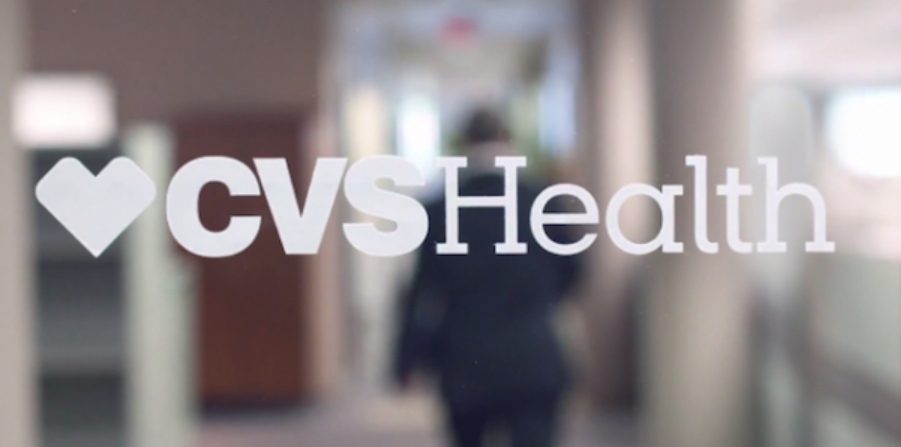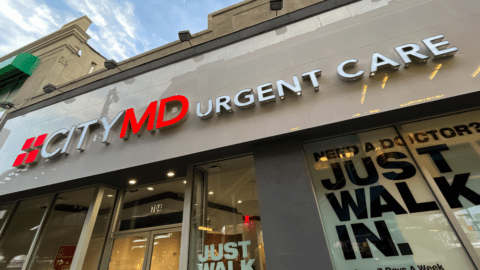UPDATE: CVS Health has acquired Aetna for $69 billion. In a press release, the companies cited that broader use of data and analytics would help patients avoid unnecessary hospital readmissions, thus lowering costs. If the deal is successful, Aetna would gain more information on patients by having access to data from CVS clinics and retail counters.
“Combining Aetna’s membership data, technology and strong Medicare Advantage growth with CVS’s pharmacy operations including MinuteClinics and prescription drug programs is a compelling combination and could in time lower the overall healthcare costs for consumers,” said Mickey Chadha, VP of Moody’s, in commentary provided to Retail TouchPoints. “This is particularly important as a relatively small percentage of patients with certain chronic illnesses or intense medical needs account for a disproportionately high percentage of healthcare costs.”
Including Aetna’s debt, the total value of the transaction is $77 billion. The transaction is expected to close in the second half of 2018. It is subject to approval by CVS Health and Aetna shareholders, regulatory approvals and other customary closing conditions.
CVS Health already has a major influence on the pharmacy sector and it continues to ramp up competition with Walgreens, but now the company is seeking even greater reach over the health care industry. The drugstore retailer reportedly placed a $66 billion bid to buy Aetna, the third-largest health care insurer in the U.S., according to a report from The Wall Street Journal.
While the talks may not lead to a deal, the companies’ respective CEOs — Larry Merlo at CVS and Mark Bertolini at Aetna — have met multiple times over a period of roughly six months, the report said.
A successful deal could push millions of Aetna’s members toward CVS pharmacies, walk-in MinuteClinics and home services for drugs, at a time when retail pharmacy companies are facing stiff competition. The companies are already partners in a contract that runs through 2019, but both are seeking to deliver more transparency to the relationship between pharmacy benefit managers (PBMs) and drug manufacturers.
Consolidation has been a popular route for both pharmacies and insurance providers under pressure from the government and large corporations to lower fast-rising medical costs.PBMs such as CVS negotiate drug benefits for health insurance plans and employers, and in recent years they have taken an increasingly aggressive stance in price negotiations with drug manufacturers.
A merger with Aetna could give CVS more leverage in these price negotiations, but it would also subject it to more antitrust scrutiny. Walgreens and Rite Aid experienced these challenges firsthand when the Federal Trade Commission blocked a merger between the two companies in June 2017. Walgreens ending up having to settle for buying 1,900+ Rite Aid stores instead of a full-scale merger, and the retailer will still have to close 600 existing stores for the deal to go through.
Amazon Makes Its First Move Into Pharmacy
One major factor driving this possible acquisition? Amazon. Ever since its Whole Foods acquisition, there has been speculation that Amazon would try to dive into the pharmacy or health care industries, probably via online prescription drug sales.
There appears to be evidence that the e-Commerce giant is headed in that direction. Over the past year, Amazon quietly has gained approval to become a wholesale pharmaceutical distributor in 12 states, according to a St. Louis Post-Dispatch report that cited public records. But simply obtaining licenses to sell doesn’t mean it will be easy for Amazon to actually break into prescription drug delivery. The company still would need to obtain a pharmacy license to ship prescription drugs directly to consumers. And the largest demographic of prescription drug consumers — seniors — still largely prefer personal care with human contact.
“Pharmacy is tough,” said Charlie O’Shea, VP and Lead Retail Analyst at Moody’s Investors Service in an interview with Retail TouchPoints. “Walgreens, CVSand Rite Aid are fairly well embedded. I’ve seen some reports saying, ‘Is Amazon getting in that business?’ but a lot of the pharmacy benefit managers [have already tried] online prescriptions. Even though there are PBMs that would like you to order prescriptions online, there’s a huge segment of the population that doesn’t buy anything online. I don’t know that it would be worth it for Amazon to go into buying prescriptions.”
Additionally, Amazon would be competing with an already crowded mail-order drug environment. In 2016, approximately $106 billion of total U.S. prescription sales of $465 billion were through mail order, according to a Morgan Stanley note. Walgreens and CVS already offer mail-order delivery, as well as PBMsExpress Scripts and United Health/OptumRX.
CVS and Walgreens have prepared themselves for Amazon’s potential entrance on their turf. CVS recently unveiled a “performance-based pharmacy network.” The company is teaming up with its retail rival along with as many as 10,000 independently owned U.S. pharmacies, to save costs and improve clinical outcomes. In all, the network will have 30,000 participating stores and build on long-standing relationships with doctors, hospitals and other health care providers —relationships that Amazon simply doesn’t have at this stage.













